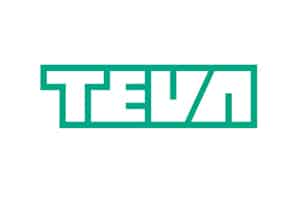
The UK Government’s push to tackle the timebomb of dementia has been boosted by an investment of up to $21m by Teva to support new drug development.
The Israeli pharma company has signed an agreement with the UK’s National Institute for Health Research (NIHR) to provide $20m for a new government-led initiative to streamline clinical development of new dementia treatments, as well as up to $1m in basic research funding.
The overarching aim is to create a single point of entry into the UK health system for new drug development projects run by the NIHR’s Office for Clinical Research Infrastructure (NOCRI).
The benefit should be that the complexities of starting clinical trials in dementia – such as having to deal with “many and varied stakeholders within the combined medical and academic network” – will be circumvented, according to Teva.
The new programme was unveiled at a UK-Israeli technology event hosted at Teva’s site in Jerusalem that was attended by UK Prime Minister David Cameron, Israel Prime Minister Binyamin Netanyahu and Teva’s chief executive Erez Vigodman.
The UK government has started a series of campaigns to raise awareness of dementia and recently said it intends to double funding for research in this area to £132m by 2025. A survey published late last year found that less than half of patients with dementia are actually diagnosed and research into new treatments is chronically underfunded, getting eight-times less than cancer.
The global cost of managing dementia currently exceeds $604bn per year – roughly equivalent to the total Gross Domestic Product (GDP) of Switzerland – and with the number of cases set to treble in the next 40 years there are concerns that dementia could overwhelm national healthcare systems.
Effective treatments are desperately needed, and last year, Teva said it planned to invest $15m over five years in neurological disease R&D, seeking new drug targets for dementia as well as other conditions such as Huntingdon’s and Parkinson’s.
Under the terms of the new agreement, NOCRI will give Teva access to NIHR-led dementia research, while the pharma company will have the right to negotiate licenses to targets identified by agency’s researchers.
“This is an excellent area for Britain and Israel to collaborate on,” said Cameron. “Success in technology, innovation, and the pharmaceutical and healthcare industries …are a must if Israel and Britain are to compete in the global race.”




